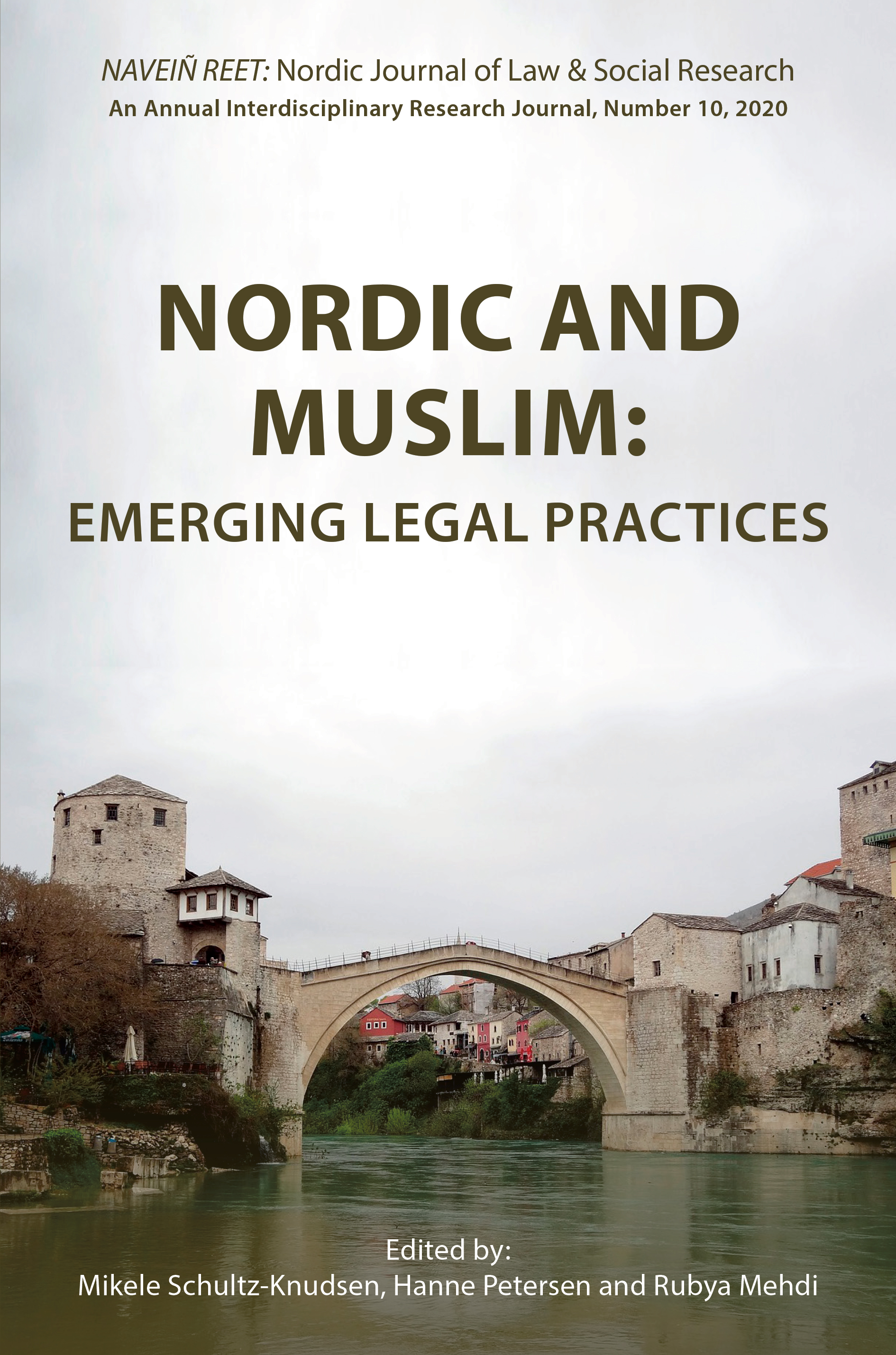The Islamic Juridical Vacuum and Islamic Authorities’ Role in Divorce Cases
DOI:
https://doi.org/10.7146/nnjlsr.v1i10.125692Abstract
This article argues that Islamic authorities do not try to sustain a jurisdiction over Islamic divorce in Denmark. They respond to a juridical demand caused by the absence of Islamic legal institutions in Denmark, which I call the Islamic juridical vacuum. This vacuum entails that sharia is often defined locally in communities or families rather than by Islamic authorities, and when women are unable to obtain an Islamic divorce they turn to Islamic authorities for help. That is, in the absence of Islamic legal institutions they expect Islamic authorities such as imams and teachers in mosques to take the role of an Islamic judge upon themselves and issue Islamic divorces. However, Islamic authorities in Denmark have no formal legal power to issue divorces and they are often incapable of helping women whose husbands object to divorce. Therefore, some women end up in a type of marital captivity that Anika Liversage and I – with the Arabic word for marrigage, nikah – call nikah-captivity (Liversage and Petersen 2020).
Downloads
Published
How to Cite
Issue
Section
License
Counting from number 12 (2022), articles published in NNJLSR are licensed under Attribution 4.0 International (CC BY 4.0). Readers are allowed to copy and redistribute the articles in any medium or format, to adapt and revise the articles, and use the articles for commercial purposes, provided that the readers give appropriate credits.
No Creative Commons licenses are applied on articles in number 1 (2009)-11 (2021). All rights reserved by the authors. Readers are allowed to download, read, and link to the articles published in volume 1 (2009)-11 (2021), but they may not republish or redistribute these articles without permission of the authors.

